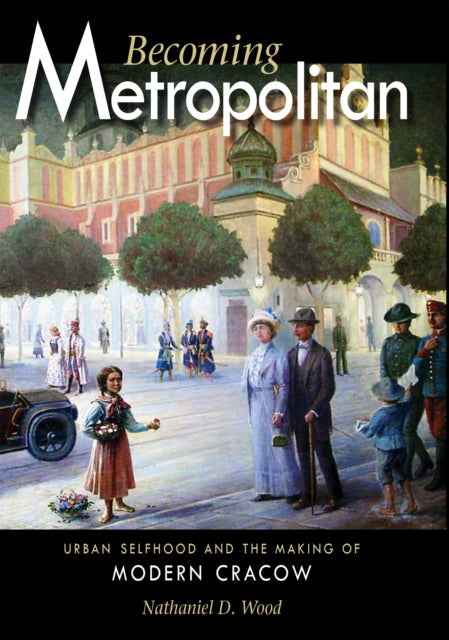
Becoming Metropolitan
Before 1900, Cracow was an underdeveloped, medium-sized city largely obsessed with celebrating its glorious past. During the brief period from the turn of the century to the beginning of World War I, the city's leaders began to examine the present and look toward the future, installing running water, electric streetcars, and electricity while incorporating the surrounding communities into Greater Metropolitan Cracow. By 1915, Cracow's population had more than doubled, making it the fifth-largest city of the Austrian monarchy. Becoming Metropolitan is an exploration of the tropes and symbols of modern, metropolitan life as seen in Cracow's illustrated daily newspapers during a period of rapid urbanization. While the majority of scholarship about Eastern and Central Europe, and Cracow in particular, has focused on nationalism, Wood's study represents a major shift. With supporting evidence form memoirs and archives, Wood demonstrates that, even in an era of intense nation building, the idea of belonging to "European" or modern urban civilization was often more important than the idea of the nation in the everyday life of the city. Due to the experience of urbanization and popular press representations of the big city at home and abroad, Cracovians began to develop distinct urban and interurban identities. Strolling the city streets, sipping coffee in cafés, riding the electric tram, and reading the boulevard press connected Cracovians to modern big-city culture. Although Cracovians shared European fears of "big-city corruption," they still looked to big cities abroad as models for dealing with the challenges of urbanization they faced at home. The popular press was a major vehicle in fostering and developing a shared sense of modern urban identity among its readers. This important work will appeal to scholars and students of urban history and the popular press, as well as those interested in Polish history, Eastern European history, and modern European history.




